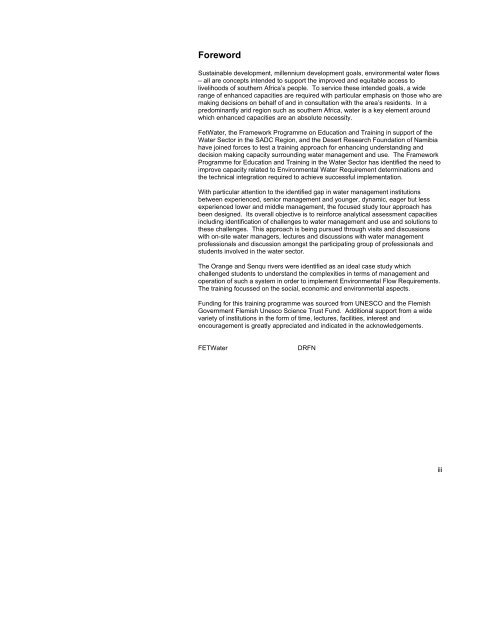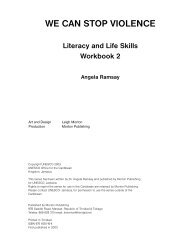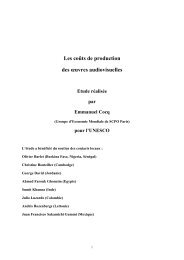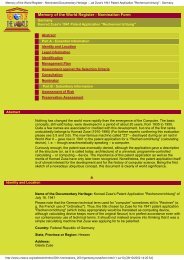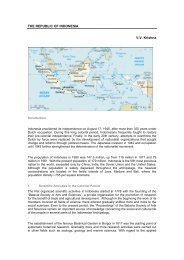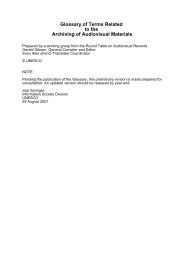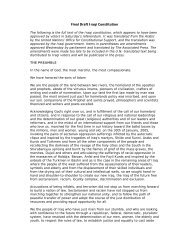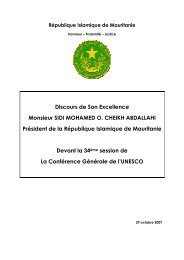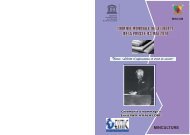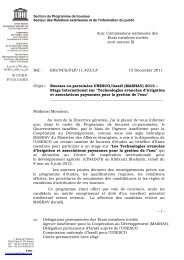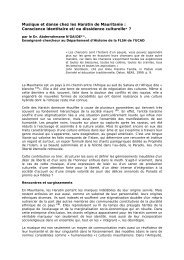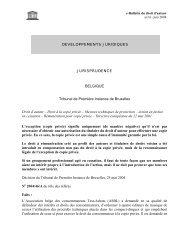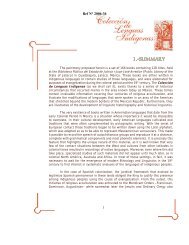An integrated assessment of socio-economic and ... - Unesco
An integrated assessment of socio-economic and ... - Unesco
An integrated assessment of socio-economic and ... - Unesco
Create successful ePaper yourself
Turn your PDF publications into a flip-book with our unique Google optimized e-Paper software.
Foreword<br />
Sustainable development, millennium development goals, environmental water flows<br />
– all are concepts intended to support the improved <strong>and</strong> equitable access to<br />
livelihoods <strong>of</strong> southern Africa’s people. To service these intended goals, a wide<br />
range <strong>of</strong> enhanced capacities are required with particular emphasis on those who are<br />
making decisions on behalf <strong>of</strong> <strong>and</strong> in consultation with the area’s residents. In a<br />
predominantly arid region such as southern Africa, water is a key element around<br />
which enhanced capacities are an absolute necessity.<br />
FetWater, the Framework Programme on Education <strong>and</strong> Training in support <strong>of</strong> the<br />
Water Sector in the SADC Region, <strong>and</strong> the Desert Research Foundation <strong>of</strong> Namibia<br />
have joined forces to test a training approach for enhancing underst<strong>and</strong>ing <strong>and</strong><br />
decision making capacity surrounding water management <strong>and</strong> use. The Framework<br />
Programme for Education <strong>and</strong> Training in the Water Sector has identified the need to<br />
improve capacity related to Environmental Water Requirement determinations <strong>and</strong><br />
the technical integration required to achieve successful implementation.<br />
With particular attention to the identified gap in water management institutions<br />
between experienced, senior management <strong>and</strong> younger, dynamic, eager but less<br />
experienced lower <strong>and</strong> middle management, the focused study tour approach has<br />
been designed. Its overall objective is to reinforce analytical <strong>assessment</strong> capacities<br />
including identification <strong>of</strong> challenges to water management <strong>and</strong> use <strong>and</strong> solutions to<br />
these challenges. This approach is being pursued through visits <strong>and</strong> discussions<br />
with on-site water managers, lectures <strong>and</strong> discussions with water management<br />
pr<strong>of</strong>essionals <strong>and</strong> discussion amongst the participating group <strong>of</strong> pr<strong>of</strong>essionals <strong>and</strong><br />
students involved in the water sector.<br />
The Orange <strong>and</strong> Senqu rivers were identified as an ideal case study which<br />
challenged students to underst<strong>and</strong> the complexities in terms <strong>of</strong> management <strong>and</strong><br />
operation <strong>of</strong> such a system in order to implement Environmental Flow Requirements.<br />
The training focussed on the social, <strong>economic</strong> <strong>and</strong> environmental aspects.<br />
Funding for this training programme was sourced from UNESCO <strong>and</strong> the Flemish<br />
Government Flemish <strong>Unesco</strong> Science Trust Fund. Additional support from a wide<br />
variety <strong>of</strong> institutions in the form <strong>of</strong> time, lectures, facilities, interest <strong>and</strong><br />
encouragement is greatly appreciated <strong>and</strong> indicated in the acknowledgements.<br />
FETWater DRFN<br />
iii


